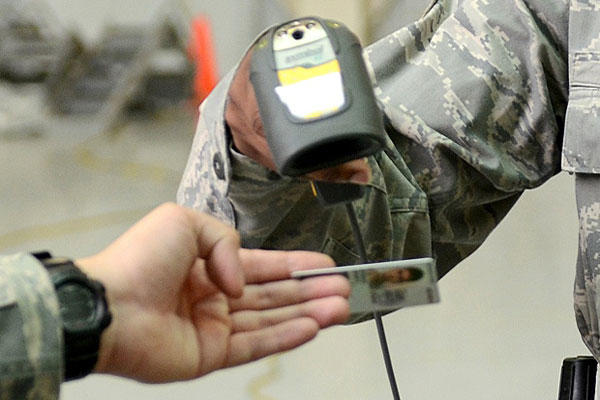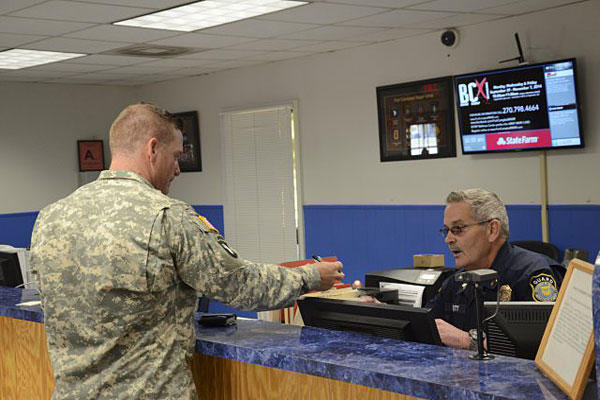A new Defense Department background check security system could force bases that do not require most visitors to show more than a driver's license to enter the gate to obtain special passes to access the base.
The system, known as the Identity Matching Engine for Security and Analysis (IMESA), combines a background check through the FBI's National Crime Information Center arrest warrant database with a check on whether the credentials have been lost, stolen or are no longer valid.
Those individuals already in the Defense Department's personnel database as a service member, dependent, civilian employee or contractor will be checked against the system automatically when passing through a security checkpoint where their IDs are scanned.
But it may not work that way for visitors at all bases.
At some locations such as Fort Campbell, Kentucky, they will need to go into a visitor's center and provide their full name, date of birth and social security number in order to go through the background check. Fort Campbell officials also plan to require visitors to show proof of vehicle registration and insurance, although it is not needed for the background check.
Visitors who are traveling in the car with a Defense Department-issued ID card holder will not need a pass, but will be required to show a government-issued ID, Fort Campbell officials said.
Fort Campbell officials said their new visitor policy will go into effect Aug. 15, putting the base in compliance with existing Army security guidance. Implementation of the IMESA system will likely come later.
"Easy installation access necessitated security matters to be tightened, and DoD is ensuring installations come into a uniform compliance," said Robert Jenkins, a spokesman for Fort Campbell. "Essentially, a DoD ID card and CAC are the only means of entry. All other entry requires a pass."
Army officials said IMESA will be first operational at Fort Belvoir in December, and fielded at 25 installations by late next year. An additional 68 Army installations will use the system by the end of 2020.
The IMESA program was implemented after the 2013 D.C. Navy Yard shooting in which defense contractor Aaron Alexis shot and killed 12 people and injured three others before he was killed by police. A security review ordered by Defense Secretary Chuck Hagel after the shootings recommended speeding up implementation of the IMESA program, which was already in development.
Although the use of the IMESA system is new for every installation, many bases already require non-DoD ID card holders who are not accompanied by a DoD ID card holder to obtain a pass.
But some bases, including many Army posts, shifted to an open access policy over the last several years as they stopped issuing DoD car window decals.
For example, in 2011, officials at Fort Benning, Georgia, stopped requiring car decals, issuing visitor's passes and closed the visitor centers that processed them. Officials at the time said the move would not impact security because hand scanners used by gate guards on driver's licenses ensured that those entering base without a DoD ID were checked and monitored.
Removing car decals reduced the chances that a service member could be targeted while off base. And closing the visitor centers, they said, saved money.
But the new DoD-wide IMESA policy will require locations like Fort Benning to reopen those centers.
Army Installation Management Command (IMCOM) officials were not able to provide details by deadline on how many posts will restart their visitor pass program or how much re-staffing those visitor centers will cost. It is unclear how Navy, Air Force and Marine Corps bases, which often do not have the same open access policies as some Army posts, will be impacted.
UPDATE: The original story incorrectly characterized Fort Campbell's security changes. They are independent of the IMESA roll out.






























